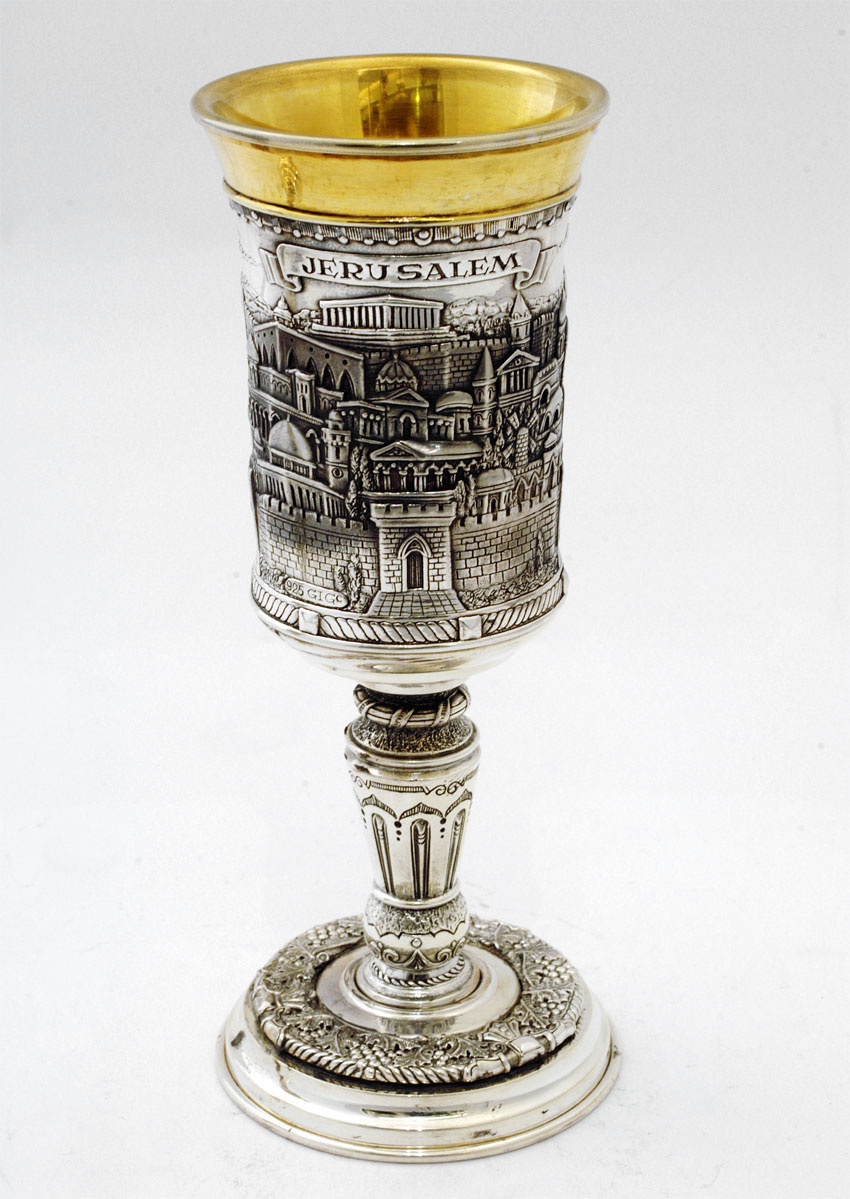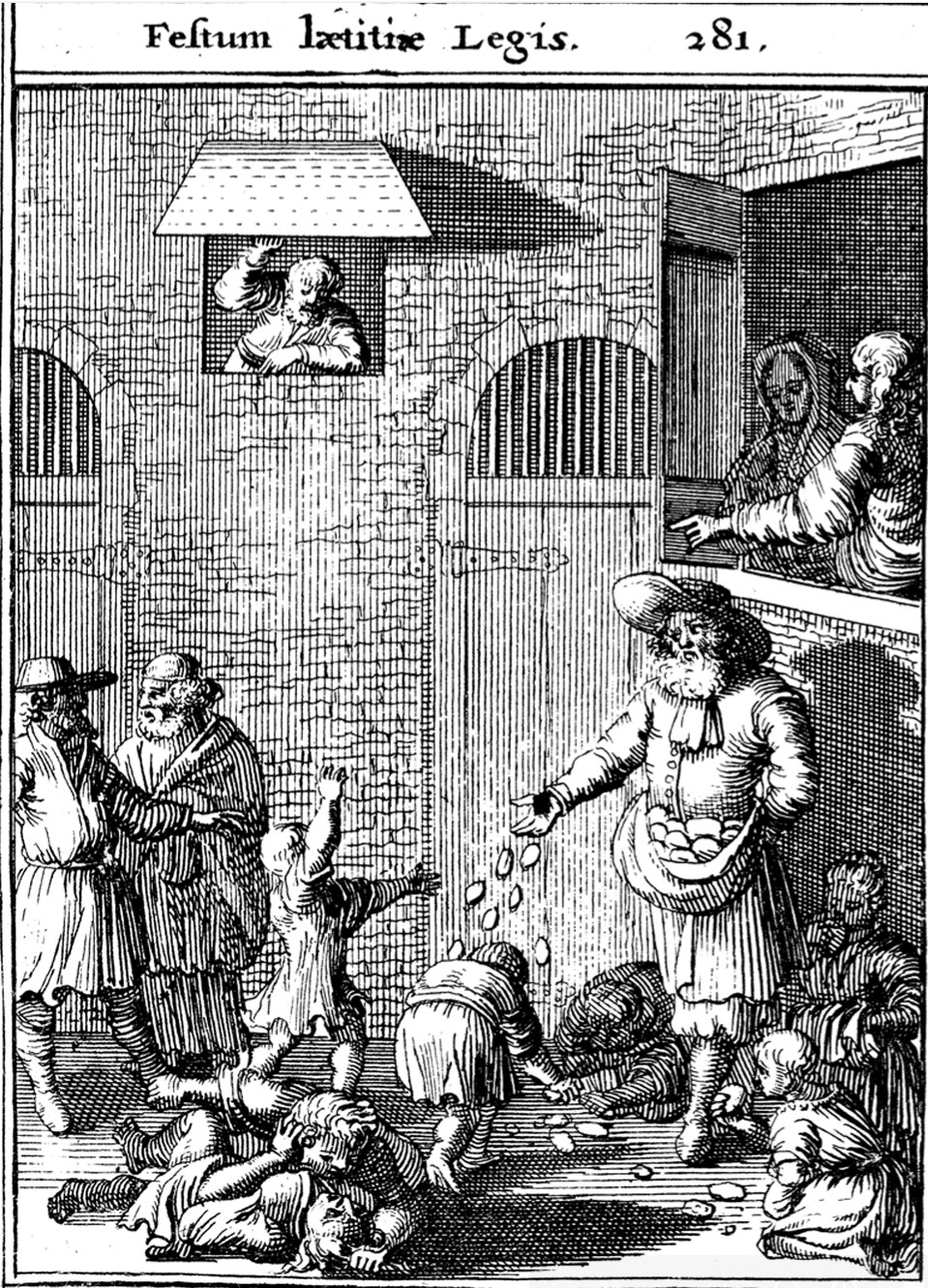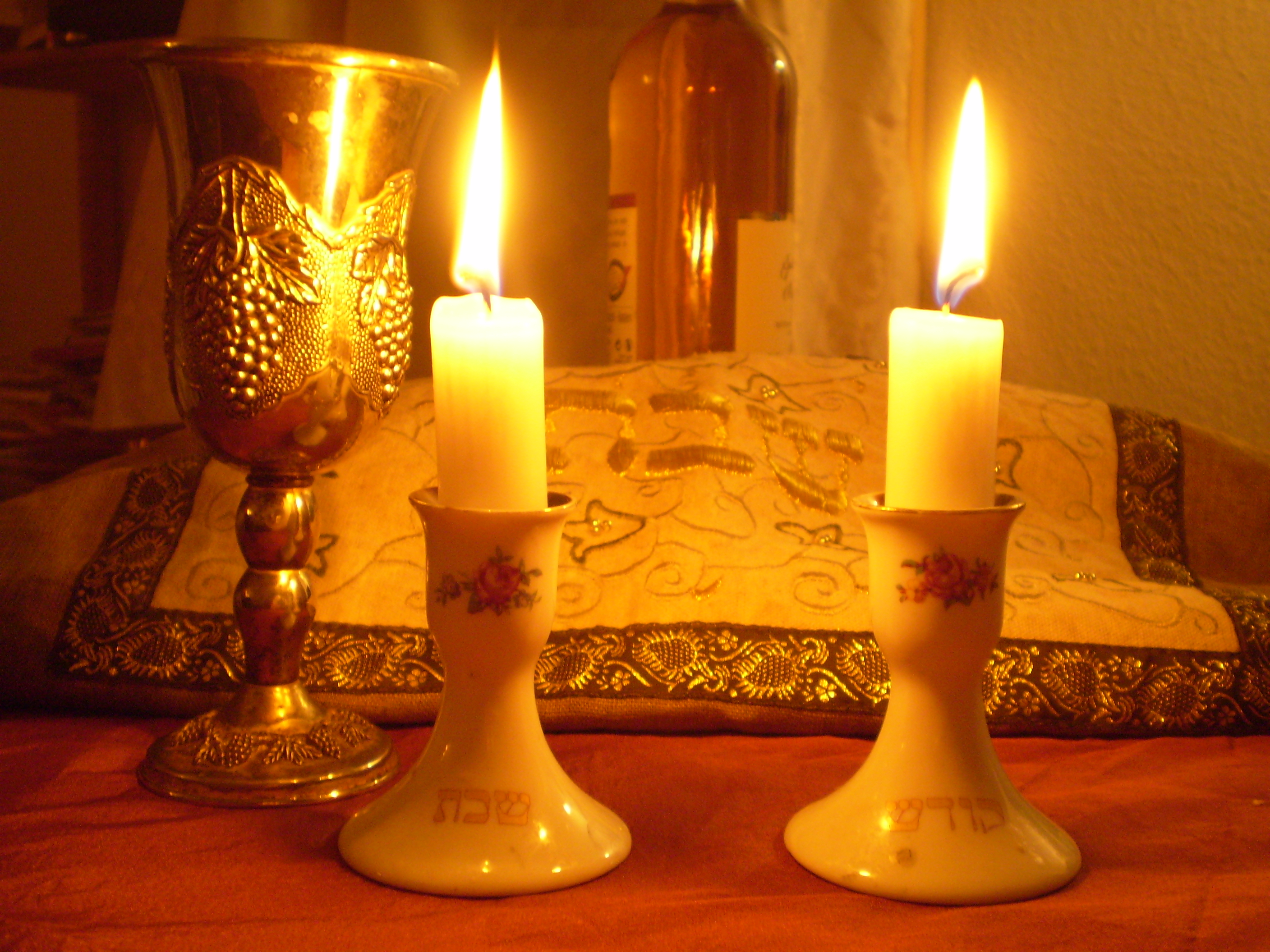|
Havdalah
Havdalah (, ) is a Judaism, Jewish religious ceremony that marks the symbolic end of Shabbat and ushers in the new week. The ritual involves lighting a special candle with several wicks, blessing a cup of wine, and smelling sweet spices (). Shabbat ends on Saturday night after the appearance of three stars in the sky. If one forgot or was otherwise not able to recite Havdalah earlier, it may be performed as late as sunset of the Tuesday following Shabbat; however, when it is recited after Saturday night the blessings of the spices and candle are omitted, and only the blessings on the wine and the havdalah itself are recited. Havdalah is also recited at the conclusion of the Jewish holidays, biblical holidays. Customs Like kiddush, havdalah is recited over a cup of kosher wine or grape juice, although other important beverages (''chamar ha-medinah'') may be used if wine or grape juice are not available. Spices, called ''besamim'' in Hebrew, often stored in an Jewish ceremonial ... [...More Info...] [...Related Items...] OR: [Wikipedia] [Google] [Baidu] |
Shabbat
Shabbat (, , or ; , , ) or the Sabbath (), also called Shabbos (, ) by Ashkenazi Hebrew, Ashkenazim, is Judaism's day of rest on the seventh day of the seven-day week, week—i.e., Friday prayer, Friday–Saturday. On this day, religious Jews remember the biblical stories describing the Genesis creation narrative, creation of the heaven and earth in six days and the redemption from slavery and the Exodus from Egypt. Since the Hebrew calendar, Jewish religious calendar counts days from sunset to sunset, Shabbat begins in the evening of what on the civil calendar is Friday. Shabbat observance entails refraining from 39 Melachot, work activities, often with shomer Shabbat, great rigor, and engaging in restful activities to honor the day. Judaism's traditional position is that the unbroken seventh-day Shabbat originated among the Jewish people, as their first and most sacred institution. Variations upon Shabbat are widespread in Judaism and, with adaptations, throughout the Abraham ... [...More Info...] [...Related Items...] OR: [Wikipedia] [Google] [Baidu] |
Kiddush
Kiddush (; ), , is a blessing recited over wine or grape juice to sanctify the Shabbat and Jewish holidays. Additionally, the word refers to a small repast held on Shabbat or festival mornings after the prayer services and before the meal. Significance The Torah refers to two requirements concerning Shabbat – to "keep it" and to "remember it" (''shamor'' and ''zakhor''). Jewish law therefore requires that Shabbat be observed in two respects. One must "keep it" by refraining from thirty-nine forbidden activities, and one must "remember it" by making special arrangements for the day, and specifically through the ''kiddush'' ceremony. Reciting ''kiddush'' before the meal on the eve of Shabbat and Jewish holidays is thus a commandment from the Torah (as it is explained by the Oral Torah), although one can also fulfill the Biblical commandment by reciting Maariv of the Sabbath which also mentions the holiness of the day. Reciting ''kiddush'' before the morning meal on Shabbat ... [...More Info...] [...Related Items...] OR: [Wikipedia] [Google] [Baidu] |
Melacha
The 39 ''Melakhot'' (, '' lamed-tet avot melakhah'', "39 categories of work") are thirty-nine categories of activity which Jewish law identifies as prohibited by biblical law on Shabbat. These activities are also prohibited on the Jewish holidays listed in the Torah ("Yom Tov"), but there are significant exceptions that permit carrying and preparing food under specific circumstances on holidays (except Yom Kippur). In addition to the 39 melakhot, certain other activities are forbidden on Shabbat due to rabbinic law. It is of note that the (strict) observance of Shabbat is often seen as a benchmark for orthodoxy and indeed has legal bearing on the way a Jew is seen by an Orthodox religious court regarding their affiliation to Judaism. The commandment The commandment to keep Shabbat as a day of rest is repeated many times in the Hebrew Bible. Its importance is also stressed in Exodus 31:12–17: Meaning of "work" Though ''melakha'' is usually translated as "work" in English, ... [...More Info...] [...Related Items...] OR: [Wikipedia] [Google] [Baidu] |
Sukkot
Sukkot, also known as the Feast of Tabernacles or Feast of Booths, is a Torah-commanded Jewish holiday celebrated for seven days, beginning on the 15th day of the month of Tishrei. It is one of the Three Pilgrimage Festivals on which Israelites were commanded to make a pilgrimage to the Temple in Jerusalem. Biblically an autumn harvest festival and a commemoration of the Exodus from Egypt, Sukkot's modern observance is characterized by festive meals in a sukkah, a temporary wood-covered hut. The names used in the Torah are "Festival of Ingathering" (or "Harvest Festival", ) and "Festival of Booths" (). This corresponds to the double significance of Sukkot. The one mentioned in the Book of Exodus is agricultural in nature—"Festival of Ingathering at the year's end" ()—and marks the end of the harvest time and thus of the agricultural year in the Land of Israel. The more elaborate religious significance from the Book of Leviticus is that of commemorating the Exodus and the de ... [...More Info...] [...Related Items...] OR: [Wikipedia] [Google] [Baidu] |
Simchat Torah
Simchat Torah (; Ashkenazi: ), also spelled Simhat Torah, is a Jewish holiday that celebrates and marks the conclusion of the annual cycle of public Torah readings, and the beginning of a new cycle. Simchat Torah is a component of the Hebrew Bible, Biblical Jewish holiday of ''Shemini Atzeret'' ("Eighth Day of Assembly"), which follows immediately after the festival of Sukkot in the month of Tishrei (occurring in September or October on the Gregorian calendar). Simchat Torah's main celebrations occur in the synagogue during evening and morning services. In many Orthodox Judaism, Orthodox as well as many Conservative Judaism, Conservative congregations, this is the only time of year on which the Sefer Torah, Torah scrolls are taken out of the Ark (synagogue), ark and read at ''night''. In the morning, the last ''parashah'' of Deuteronomy and the first ''parashah'' of Book of Genesis, Genesis are read in the synagogue. On each occasion, when the ark is opened, the worshippers leave t ... [...More Info...] [...Related Items...] OR: [Wikipedia] [Google] [Baidu] |
Passover
Passover, also called Pesach (; ), is a major Jewish holidays, Jewish holiday and one of the Three Pilgrimage Festivals. It celebrates the Exodus of the Israelites from slavery in Biblical Egypt, Egypt. According to the Book of Exodus, God in Judaism, God commanded Moses to tell the Israelites to slaughter a lamb and mark their doorframes with its blood, in addition to instructions for consuming the lamb that night. For that night, God would send the Destroying angel (Bible), Angel of Death to bring about the Plagues of Egypt, tenth plague, in which he would Plagues of Egypt#plague10, smite all the firstborn in Egypt. But when the angel saw the blood on the Israelites' doorframes, he would ''pass over'' their homes so that the plague should not enter (hence the name). The story is part of the broader Exodus narrative, in which the Israelites, while living in Egypt, are enslaved en masse by the Pharaoh to suppress them; when Pharaoh refuses God's demand to let them go, God sends ... [...More Info...] [...Related Items...] OR: [Wikipedia] [Google] [Baidu] |
Shavuot
(, from ), or (, in some Ashkenazi Jews, Ashkenazi usage), is a Jewish holidays, Jewish holiday, one of the biblically ordained Three Pilgrimage Festivals. It occurs on the sixth day of the Hebrew month of Sivan; in the 21st century, it may fall anywhere between May 15 and June 14 on the Gregorian calendar. Shavuot marked the wheat harvest in the Land of Israel in the Hebrew Bible according to Ki Tissa#Sixth reading—Exodus 34:10–26, Exodus 34:22. Rabbinic tradition teaches that the date also marks the revelation of the Ten Commandments to Moses and the Israelites at Mount Sinai (Bible), Mount Sinai, which, according to the tradition of Orthodox Judaism, occurred at this date in 1312BCE. or in 1313 BCE. The word means 'weeks' in Hebrew and marks the conclusion of the Counting of the Omer. Its date is directly linked to that of Passover; the Torah mandates the seven-week Counting of the Omer, beginning on the second day of Passover, to be immediately followed ... [...More Info...] [...Related Items...] OR: [Wikipedia] [Google] [Baidu] |
Acrostic
An acrostic is a poem or other word composition in which the ''first'' letter (or syllable, or word) of each new line (or paragraph, or other recurring feature in the text) spells out a word, message or the alphabet. The term comes from the French from post-classical Latin , from Koine Greek , from Ancient Greek "highest, topmost" and "verse". As a form of constrained writing, an acrostic can be used as a mnemonic device to aid memory retrieval. When the ''last'' letter of each new line (or other recurring feature) forms a word it is called a telestich (or telestic); the combination of an acrostic and a telestich in the same composition is called a double acrostic (e.g. the first-century Latin Sator Square). Acrostics are common in medieval literature, where they usually serve to highlight the name of the poet or his patron, or to make a prayer to a saint. They are most frequent in verse works but can also appear in prose. The Middle High German poet Rudolf von Ems for ex ... [...More Info...] [...Related Items...] OR: [Wikipedia] [Google] [Baidu] |
Shabbat Candles
Shabbat candles () are candles lit on Friday evening before sunset to usher in the Jewish Sabbath. Lighting Shabbat candles is a rabbinically mandated law. Candle-lighting is traditionally done by the woman of the household, but every Jew is obligated to either light or ensure that candles are lit on their behalf. In Yiddish, lighting the candles is known as ''licht bentschen'' ("light-blessing") or ''licht tsinden'' ("light-kindling"). History 1723 illustration of a Shabbat lamp According to Tobiah ben Eliezer, the custom is one "which Israel adopted from the time of Moses", while Genesis Rabbah relates that "For all the days that Sarah lived, the Sabbath lamp stayed lit until the next Sabbath eve, and for Rebecca it did the same . . ." According to Leopold Landsberg, the Jews adopted this custom from the Persians. Jacob Zallel Lauterbach disagrees, arguing that it was instituted by the Pharisees to protest against superstition, or perhaps against (some predecessor of) t ... [...More Info...] [...Related Items...] OR: [Wikipedia] [Google] [Baidu] |








